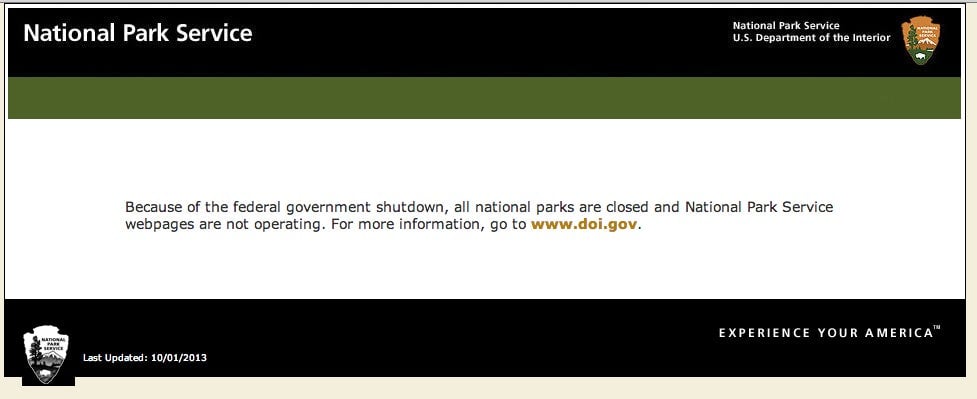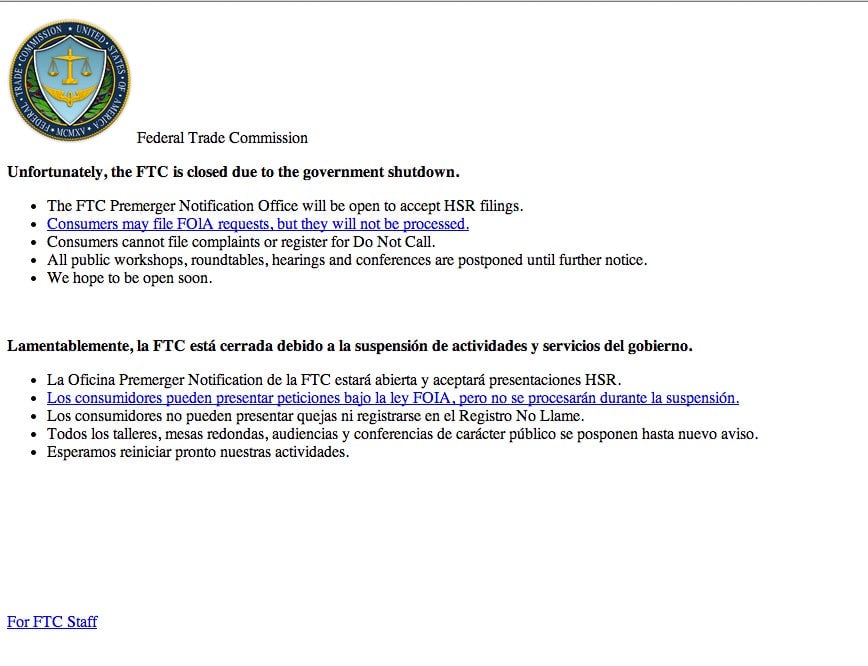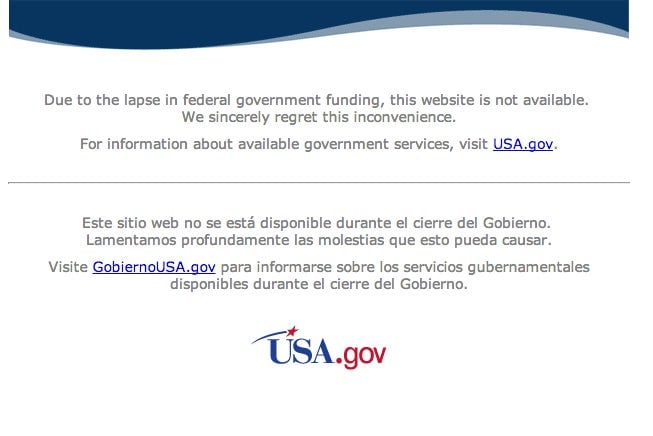Why is NASA.gov shut down while CIA.gov is still open?
As some US government websites have gone dark during the shutdown, others remain up, and some are up but have notices saying they’re not being updated. It seems like there’s no rhyme or reason to these decisions. So what’s the deal?

As some US government websites have gone dark during the shutdown, others remain up, and some are up but have notices saying they’re not being updated. It seems like there’s no rhyme or reason to these decisions. So what’s the deal?

“It’s that you need people to run them,” a former White House budget official says. In a shutdown, non-essential personnel are sent home, and that includes IT employees. In other cases, websites are managed by outside contractors who can’t get paid without Congressional approval, so those sites, too, go dark.
Basically, until Congressional funding is restored, it is illegal to do anything that would give someone an excuse to ask the government for money when it re-opens—and that includes hosting fees and electricity bills. And the varied responses underscore how confusing and messy it is when the government has to stop usual operations on a dime.

Exceptions are made to protect health and property; if the agency has a stream of funding separate from Congress; if its duties are constitutionally-mandated (like national security); or if pulling down the front-end website would jeopardize vital back-end functions. Here’s how the top White House budget official put it in her guidance (PDF) to agency heads:
The mere benefit of continued access by the public to information about the agency’s activities would not warrant the retention of personnel or the obligation of funds to maintain (or update) the agency’s website during such a lapse. However, if maintenance of the website is necessary to avoid significant damage to the execution of authorized or excepted activities (e.g., maintenance of the IRS website may be necessary to allow for tax filings and tax collection, which are activities that continue during an appropriations lapse), then the website should remain operational even if its costs are funded through appropriations that have lapsed. If it becomes necessary to incur obligations to ensure that a website remains available in support of excepted activities, it should be maintained at the lowest possible level. For example, in the IRS case above, the IRS website would remain active, but the entire Treasury Department website would not, absent a separate justification or a determination that the two sites cannot not feasibly be operated separately.

So, in some cases, government websites simply aren’t being updated, because the people who do that aren’t at work. In other cases, websites are just shut down. Systems administrators could decide that the risk of something going wrong when they can’t fix it—whether hackers or simply a bug—isn’t worth taking. Many federal IT employees will be focused on maintaining internal data-centers with a skeleton crew, not worrying about public-facing sites.

And in some cases, of course, political appointees and outgoing employees want to make sure that everyone knows a government shutdown is happening to make sure it ends sooner. That might be why some of them have thrown up unhappy splash screens or pulled down websites.
